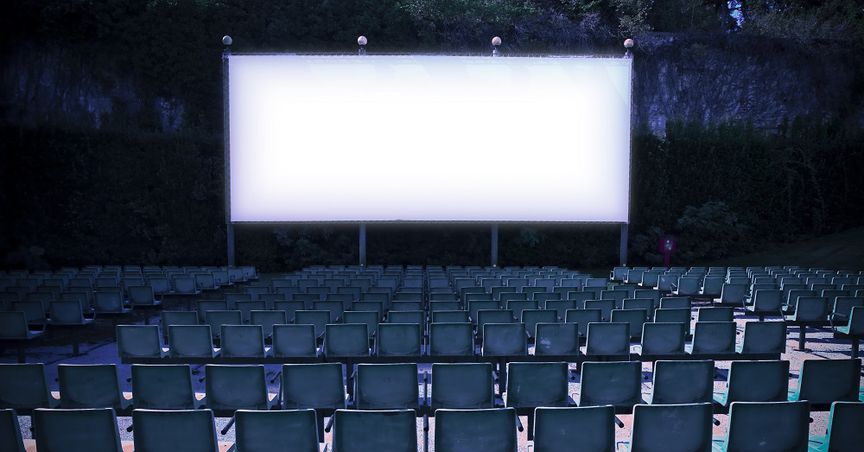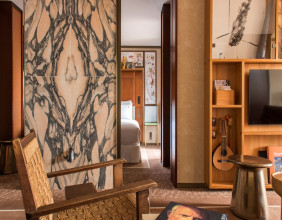Summary
- British Government to invest in art, cultural, and heritage sector to safeguard them from collapsing
- The funding has been welcomed by the Arts Council England, the Music Venue Trust, the Society of London Theatre, the UK Theatre and the Royal Opera House
- The Arts Council England has invested a total of £64.8 million in supporting the cultural workers
On 5 July 2020, Prime Minister Boris Johnson announced a sector-specific rescue package, and said that Britain would invest $2 billion (£1.57 billion) in art, cultural and heritage to safeguard them from collapsing. The government announced the rescue package after receiving several requests from the trade unions of the creative industry.
This is one of the most significant investment in the history of the cultural sector of the United Kingdom. It will be used to protect the sector from falling further and would help protect the staff jobs, even while the sectors itself remains closed. Britain's museums, art galleries, theatres, heritage sites and music venues, etc., will be covered by these emergency grants.
The cultural sector of Britain has been facing crisis and it is projected to face a drop in revenue by £74 billion and a loss of 400,000 jobs because of the Covid-19 catastrophe. Though the museums, galleries and theatres have reopened from 4 July with strict social distancing norms, they are restrained from hosting any live performances.
To know more, also read: https://kalkinemedia.com/uk/editorial/uks-social-distancing-norms-get-relaxation-hospitality-sector-to-reopen-from-july-4
The British government rolled out a rescue package for cultural organisations in England, which consists of £880 million in grants and £270 million in loans, a support pot of £1.15 billion. The government would invest £120 million to recommence construction activities related to cultural infrastructure and for heritage construction projects in England which were stalled amid paused the unprecedented crisis caused by the novel coronavirus. In addition, the government would grant £100 million to bolster the national cultural institutions of England. For devolved administrations, the government has allocated £97 million for Scotland, £33 million for Northern Ireland, and £59 million for Wales.
Economy is slowing down
Various economic forecasters expect that coronavirus pandemic to sharply contract the UK and the global economies during the year 2020. This shrinking has been caused by a fall in demand for goods and services and the inability of the businesses to sustain themselves.
The International Monetary Fund (IMF) estimates that the size of the decline in global economy due to the pandemic will be much larger than that experienced during the Global Financial Crisis of 2008-2009. The lockdown has disrupted the supply chain, lowering the productivity and hampering the Gross Domestic Product (GDP).
The COVID-19 pandemic has caused a rise in human costs worldwide, and the essential precautionary measures are severely impacting economic activities across the globe. It is projected by IMF that the global economy would contract sharply by (3) per cent in 2020. It is assumed that if the pandemic will fade away in the second half of the year 2020, the global economy is projected to grow by 5.8 per cent in 2021.
Looking at the GDP of the United Kingdom, it fell by 2.2 per cent (in terms of volume) for the first quarter of the year 2020 (Q1 2019: (1.7) per cent), recording the largest fall since 1979. Effective policies have been made by the British Government, and necessary measures have been adopted to overcome the crisis and restore economic and human health. Because the economic fallout has been so drastic, there is a need to implement monetary and fiscal measures to uplift the affected businesses.
The Industry Response
The funding has been welcomed by various arts and cultural associations in the country including Arts Council of England, Music Venue Trust, Royal Opera House, Society of London Theatre, and the UK Theatre. According to the chief executive of the Music Venue Trust, Mark Davyd, the grant would provide an excellent opportunity for the company to stabilise its networks and to start strategising the plans to reopen the live music segment safely.
The chairman of the Arts Council, Sir Nicholas Serota, said that the funds would help the arts sector to revive and bring it back to the community.
Rufus Norris and Lisa Burger, the chief executives of the National Theatre, were very positive that the investment would reach and sustain the talent of the art sector.
The artistic director of the Royal Court Theatre in London, Vicky Featherstone, said that the funds would prove to be beneficial for the freelancers working in the theatres and would also support in restarting their production operations soon.
The artistic director of English National Ballet, Tamara Rojo, said that the funding was a much-needed action and would contribute to the survival of the sector.
Arts Council England
The three months of the lockdown has been very challenging for everyone. Such has been the case with the Arts Council as well. But it has still been able to provide a £160 million package of Emergency Response Funds with the help of government, in order to help those individuals and organisations most affected by the pandemic. Their strategy has been to support the artists, to preserve the art and cultural sector of Britain, to meet the cash flow challenges and to restart the production work.
It has been awarded funding of 10,000 grants and many more to save the cultural diversity of the people of Britain.
The Arts Council England allocated £47.7 million to 2,187 organisations, and £17.1 million to 7,491 individuals, with a total sum of £64.8 million funds. In addition, the council made a provision of additional £4 million, which would be used to support cultural performers such as musicians, and other stage artists.
To face the challenges thrown at the cultural sector by the pandemic and to overcome the crisis, it has formulated a three-phase strategy which involves the response phase, the stabilisation phase and the reset phase. The response phase implies from March 2020 to September 2020 in which three Emergency Response Funds have already been launched. The second phase is estimated to begin from May 2020 till March 2021, overlapping with the response phase. The third and the final stage is expected to start in April 2021 and continue till March 2024.
Conclusion
The lockdown has had a devastating effect on the all the sectors of the economy including the arts & cultural sector, with lack of revenue generation, high-costs of resuming the operations and uncertainty regarding the end of pandemic times. But the Emergency Response funds and Government's grant will definitely be a boon to the sector. Receiving the right support at the right time and working in a more coordinated way will help the sector grow.




